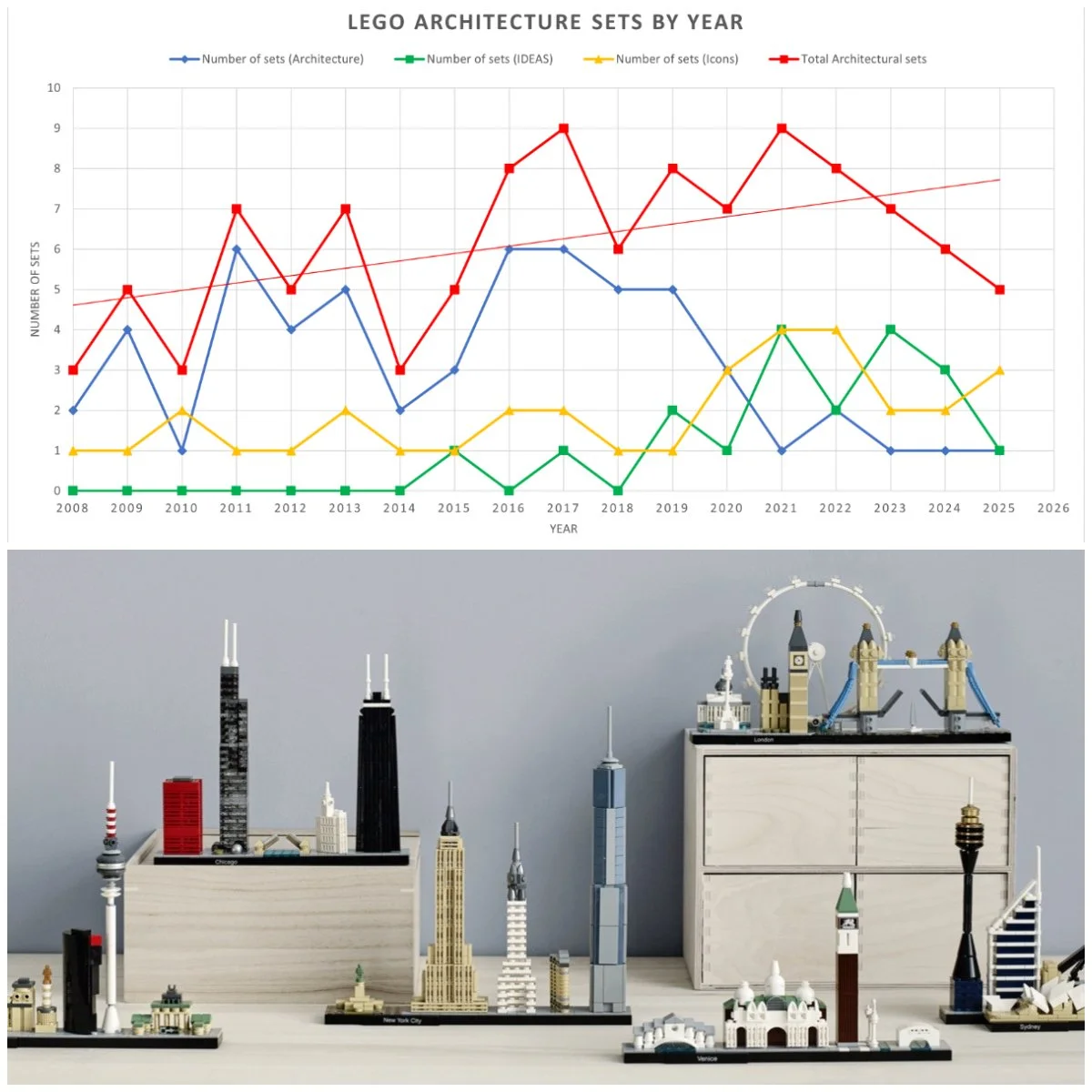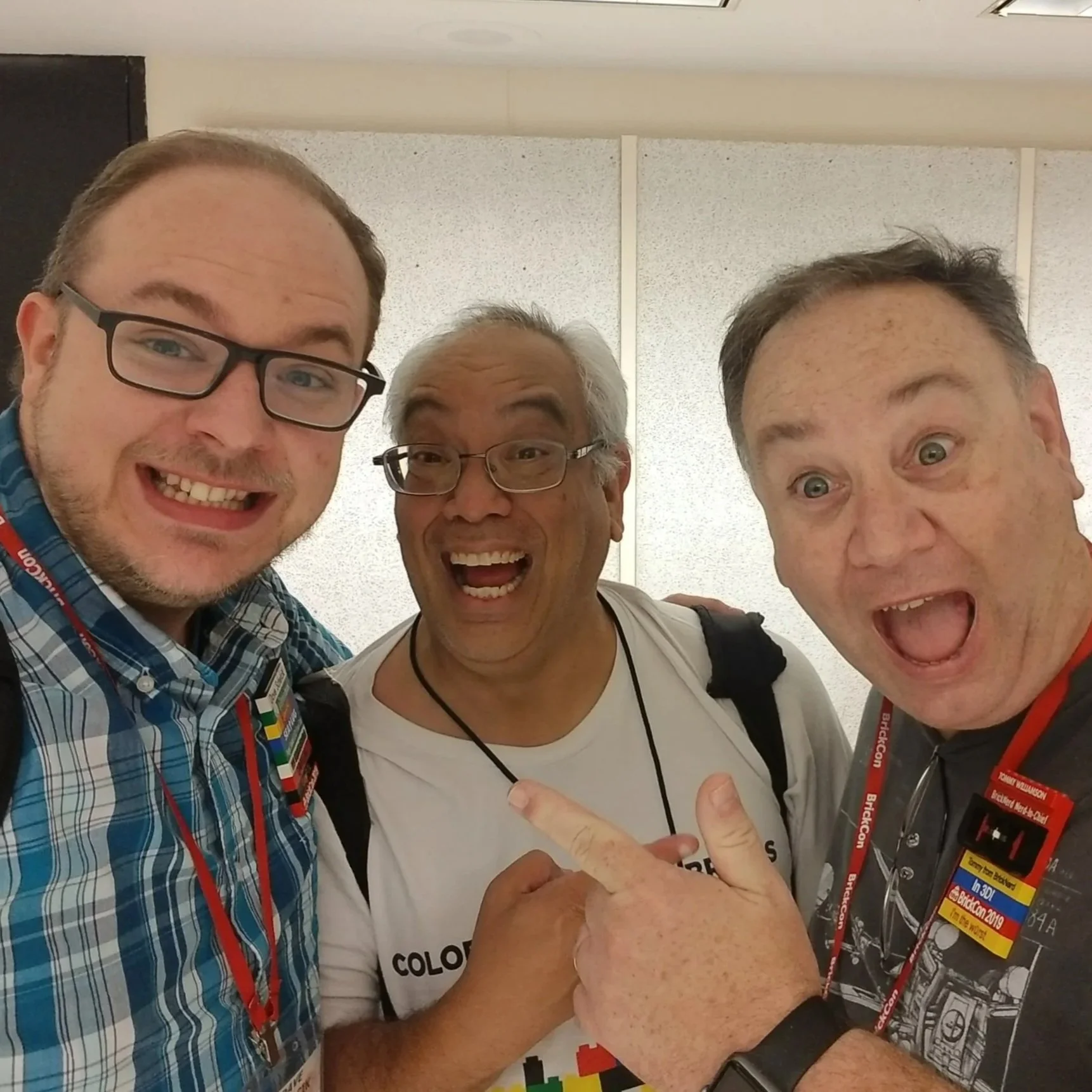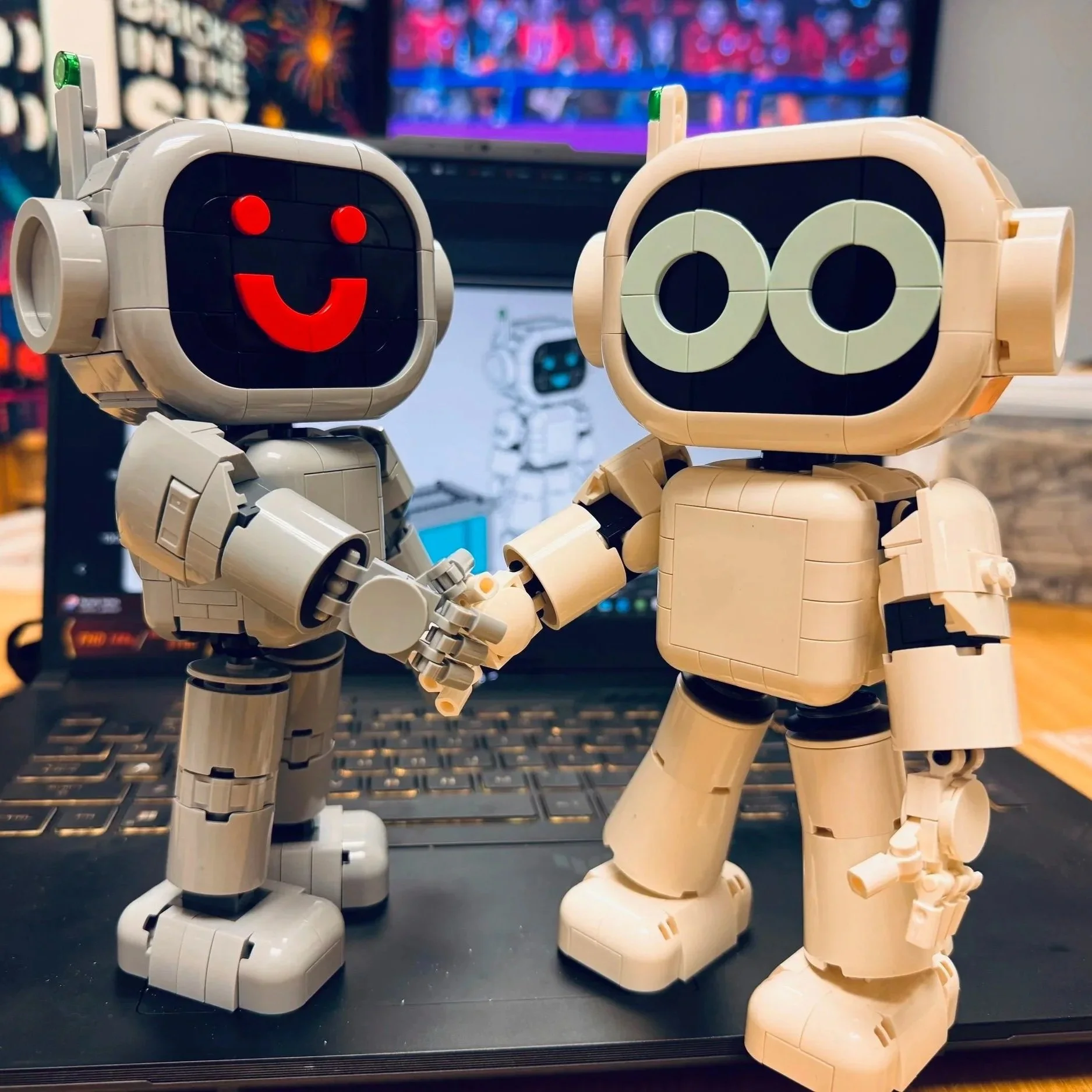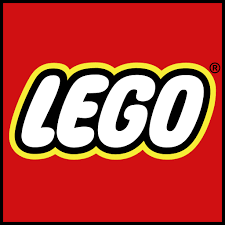Bricks, Filmed: A Conversation with Director Daniel Junge
/Directors Daniel Junge and Kief Davidson at their film's tribeca film festival showing in 2014. (photo via the huffington post)
LAST year, a little film about plastic toy bricks hit theaters and immediately became a worldwide phenomenon. Starring the voices of Chris Pratt, Elizabeth Banks and Will Ferrell, The LEGO Movie followed the adventures of minifigs Emmett and Wildstyle as they battled the big, bad Lord Business. After pulling in more than $250 million at the box office, TLM was a bonafide pop culture hit.
Later that year, another LEGO-themed film made its debut at the world-famous Tribeca Film Festival: Beyond The Brick: A LEGO Brickumentary, helmed by co-directors Kief Davidson and Daniel Junge. Featuring legions of AFOLs and their awesome MOCs, the newly-renamed A LEGO Brickumentary finally premiered in theaters across the U.S. and online this past weekend. The following Q&A was edited for clarity and length from an interview with the Academy Award-winning Junge, conducted last year.
Bricknerd.com: What was the impetus for the film?
Daniel Junge: The president of distribution at Lions Gate Pictures wanted to do a film on Brickworld (a major AFOL convention). And I did some research. That would be a great film, I thought, but what about a film on the whole LEGO community? No one had ever done such a film.
BN: Tell me about how much research went into the making of your movie.
DJ: This was an epic marathon of a film. So we started shooting a little over a year-and-a-half ago (in 2012). We shot in 12 countries, shot over 200 hours of high definition video. And yes, I did some research, but let's face it – the LEGO world is so massive that you could spend weeks researching. We started discovering stories along the way: we followed the latest round of (the formerly named CUUSOO, now LEGO Ideas), such as the Martian rover project.
BN: What have you discovered about AFOLs that truly intrigues you? And what do you hope your film will teach your audience about our community?
DJ: I believe it will show the kind of progression in the movement away from the people who went through a "dark ages" (i.e. an extended interval of time when an AFOL stopped building with LEGO bricks -- ed.), or even if they didn't leave the brick so to speak, were a little embarrassed -- I hope our film shows that that has quickly become a thing of the past, and we hope the film helps that. One of our subject's sons hadn’t played with LEGO for a year or two, and now he does again. Something you can do from childhood to adulthood without a break in it – I think that’s empowering.
BN: Where do you think AFOLs fit in within the overall universe of fans, e.g. Trekkers, Whovians, etc.?
DJ: I think that AFOLs are in some ways more interesting and more empathetic because of the very nature of what they're doing -- the creativity that comes from themselves. Star Wars and Doctor Who fandom is based on something made by somebody else. Not only is AFOL creativity self-generating, it's also self-empowering.
BN: Having shot your film in a dozen countries, have you found that AFOLS are the same in every country?
DJ: I think so, and I think in some way, that speaks to the fact that LEGO has become a language in and of itself – it’s a more international language than the Windows operating system, or like a codified system similar to letters of a language, or notes on a musical scale.
BN: What makes your film different from other documentaries about LEGO?
Others have approached their films as more of an "insider look at LEGO" – how the toy is made, how it's designed. I think we were doing an "outside-in" look -- a look at the AFOL community.
... I will say it has not been an easy film to make – that has to do with how huge and sprawling the subject is. I’m concerned about doing the community justice. I believe this film is done very reverentially, and I just respect how passionate the community is.
In the film, one of the bigger questions we ask is, why do people build? For the answer you have to see the film… It's something inherently human.
















